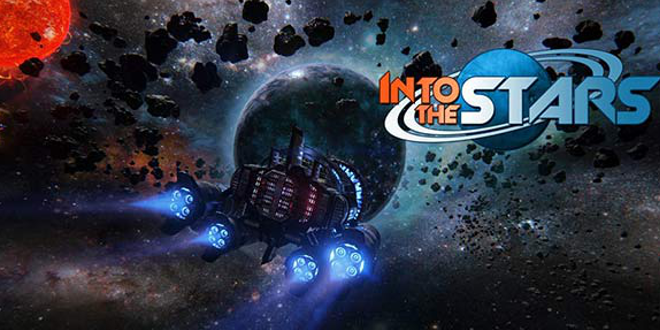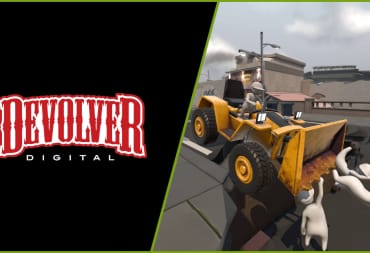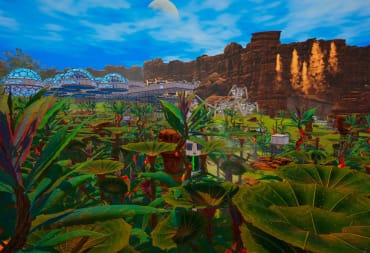Sometimes as a reviewer, you come across a game that can be summed up in pretty much a few sentences. These type of games, usually due to their banal design, game-breaking bugs, or just simply uninspired gameplay, are difficult to really talk about, because they are so bland, so boilerplate in their design and function it’s just not worth wasting extra energy on it. The kicker is even worse, you may have no desire to continue playing, despite doing so because it’s your job.
It’s a curious thing, really, playing something you know in an hour you won’t like past that point because of obligation, and sometimes it just simply becomes a case of running down the clock until you have enough to do a proper review on. This is essentially the case with Into the Stars, a FTL-styled space simulator game that felt so boring, so tedious, in the end I was glad the experience was over. After playing it for over eight hours, I realized I wanted to quit seven hours ago, but I couldn’t do so yet, because I had to give it a fair shake.
It is unfortunate that the game never improved. Into the Stars is a bad game not because of technical issues, although there are some reports of instability and game crashing. No, it’s just simply not fun to play when you have the likes of FTL already released, or upcoming space simulators to look forward to. It pales in comparison in every way, leaving a sad, empty impression in its wake of what could have been.
It’s a shame too, because right out of the gate, Into the Stars eschews a lot of the more annoying tropes of independent game development. For starters, it doesn’t rely on nostalgia with graphical presentation, instead spending money on the Unreal 4 engine to give the game a gorgeous field of view. This is in part to developer Fugitive Games being able to kickstart Into the Stars back in February of last year, netting $111,000 and 4,131 backers, and having an experienced development team behind the project. All this does give it a look that is a cut above most independent titles.
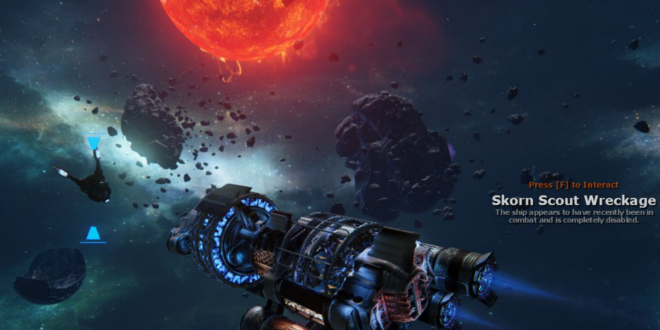
Further, the highlight of the game itself is its sound design, music and special effects. These were composed by Jack Wall, who is probably best known for his work on the Mass Effect series. Wall's patented, sci-fi techno-symphonic music evokes a similar feeling of subtle epicness here, with good ambient music thrown in throughout the game. If there is one major positive to say about Into the Stars, it is how Jack Wall, coupled with its graphical presentation, elevates the project above what it ultimately is.
Perhaps this is why it feels so bland in the end. Despite high production values and a realistic, simulation aesthetic, Into the Stars suffers from mediocrity everywhere else, right down to ship controls and menu usage. Flying the ship is difficult, mostly due to having 360 degree movement in space, so it comes across as a space simulation that is begging for a joystick to really take advantage of the movement. The controls cannot be customized either, and while Into the Stars does have a left-handed control scheme, it doesn’t tell you about it in the help menu, leaving you to discover it yourself like I did.
The lack of PC customization may be a turnoff for some in the end, but the biggest problem comes from the gameplay issues. Almost every action you do, from landing on planets to mining for resources, building structures in your super-ship, and solving in-game crises, are menu-options and mini games to play. You select crew members to solve problems based on their skills, or to pilot or man expeditions to planets, and by random chance they can pass or fail, sometimes with serious consequences. One of the first expeditions I ever did killed three crew members despite having a 90% chance of succeeding. The game doesn’t really give feedback on which skills your crewmates have give you better odds, so it feels like a crapshoot since every time you fail a mission, fail a landing or even fail setting up your mining probes, you are stuck with injured crewmates or suffer instant kills.
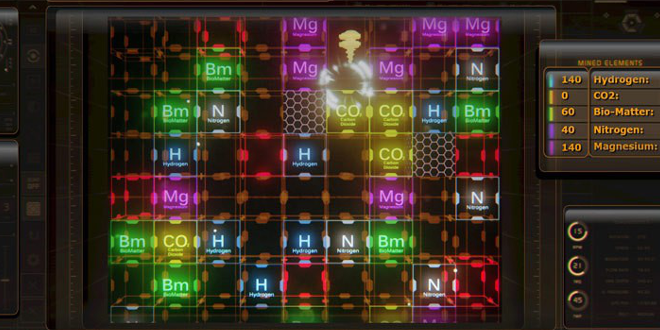
There is also a major problem with game balance. The aforementioned crew deaths are one example, but the biggest issue comes from how Into the Stars handles combat and resource management. Since you are on a clock, and only have a certain number of days’ worth of food and oxygen in your ship, you have to keep moving or keep mining for resources to replace what you have lost. Into the Stars tries to force players to make hard choices because of this, but most of it comes off as cheap or a diversion compared to those two needs. Essentially, all other in-ship crises don’t matter as much, nor do they affect the game outside of a morale loss that is seemingly innocuous to the player. The basic pattern is finding food and oxygen reserves on each planet before you run out and die, which makes the game predictable, and relatively easy in higher difficulties.
Combat is a tough mess, the complete opposite of resource gathering. Part of the game's story is a sort of Battlestar Galactica-esque plot that has you being followed by an alien race known as the Skorn, which also forces a boring combat mini-game on you when you get caught. It’s boring because it’s real-time fighting with tacked on rock-paper-scissors combat mechanics. Shields and weapons are color-coded, so long as you don’t match the color of your enemies shields, you can hit them, in theory at least.
In practice, combat is purely based on stat rolls and random chance in the end, making ship battles a long, plodding slog without much input from the player. The only real toggles are which target your laser weapons will hit, and an evade button that relies on timing more than anything else. There is no strategy to combat; it ultimately boils down to how powerful your weapons are vs the enemy shields, and sometimes the invisible dice in the background will be unfavorable to you. In higher difficulties, encountering the Skorn are all but unavoidable, often hitting your ship after you gather resources from a planet. The lowest difficulty has the Skorn almost becoming a non-factor, never chasing you, allowing for a slow, casual cruise without that sense of urgency attached.
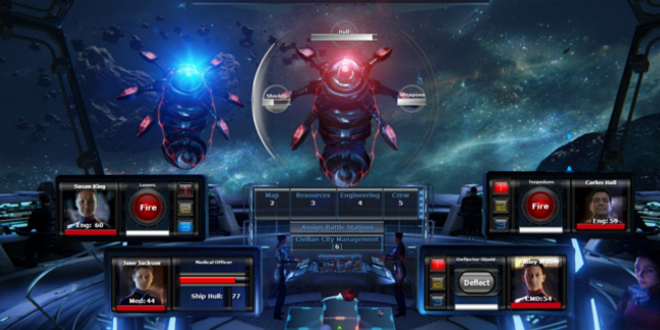
The tonal shift in the difficulty is likely unintentional, but a consequence in the game's design. Parts of it are incredibly simple, borderline superfluous in the end because they don’t effect much of the game. City buildings that you can create give you mini bonuses, but very rarely do ship stats go down real low, making them a waste of resources. Your crew and captain stats are almost unnecessary, since the random chance does not seem to be affected by their abilities as much as they should. Even ship customization is quite shallow; you can use some predetermined builds or build your own ship, but ultimately all ships become the same in the long run out of necessity, to either hold more resources or to upgrade weapons to survive tougher enemies.
The whole game is boring in the end, and that is sometimes the worst criticism you can give a video game. People looking at Into the Stars as being fun or engaging as FTL was will be sorely mistaken, and with a large amount of space simulation titles on the market, from big budget MMOs to a growing number of independent titles, Into the Stars simply fails to stand out. In truth, even hardcore space simulation fans might find Into the Stars hard to swallow, leaving it next to impossible to recommend to anyone.
Into The Stars was reviewed on Steam with a code provided by the developer. It was played for eight hours before a score was given.
Review Summary
A bland game from the get go, Into the Stars has high production values and a great soundtrack, but it's mired in mediocrity thanks to its gameplay.
(Review Policy)Have a tip, or want to point out something we missed? Leave a Comment or e-mail us at tips@techraptor.net
